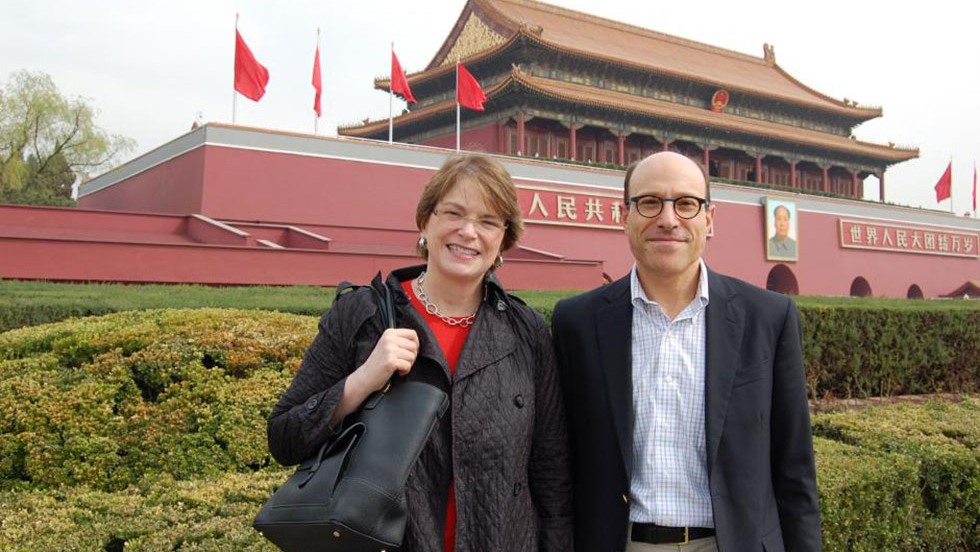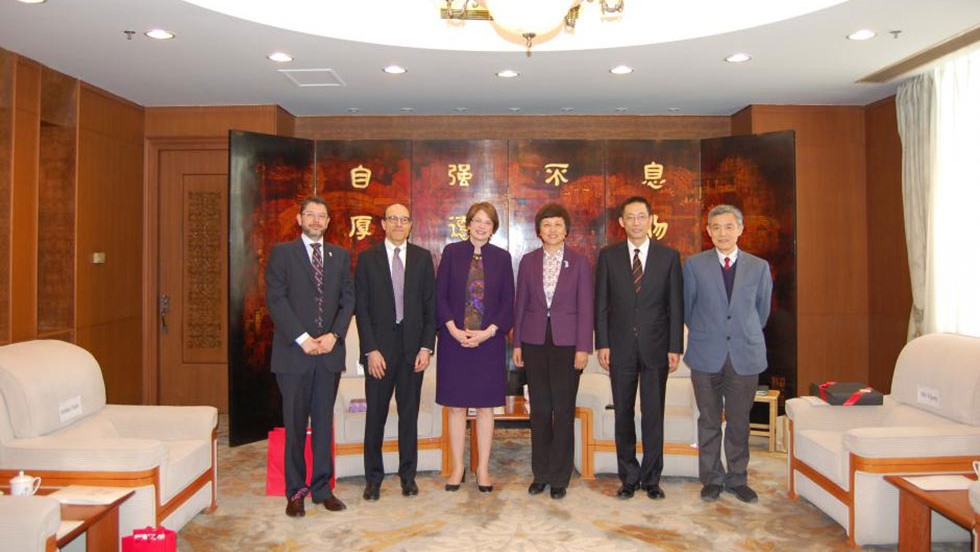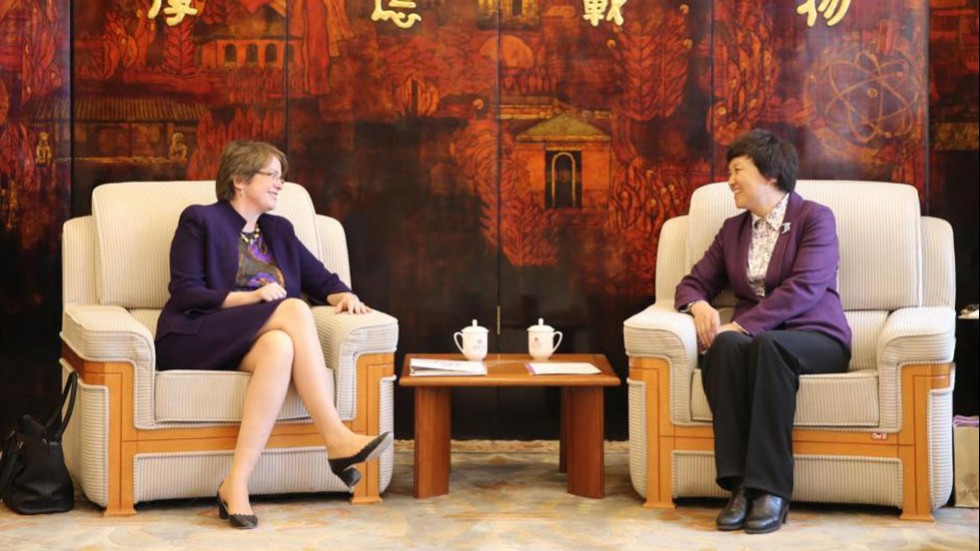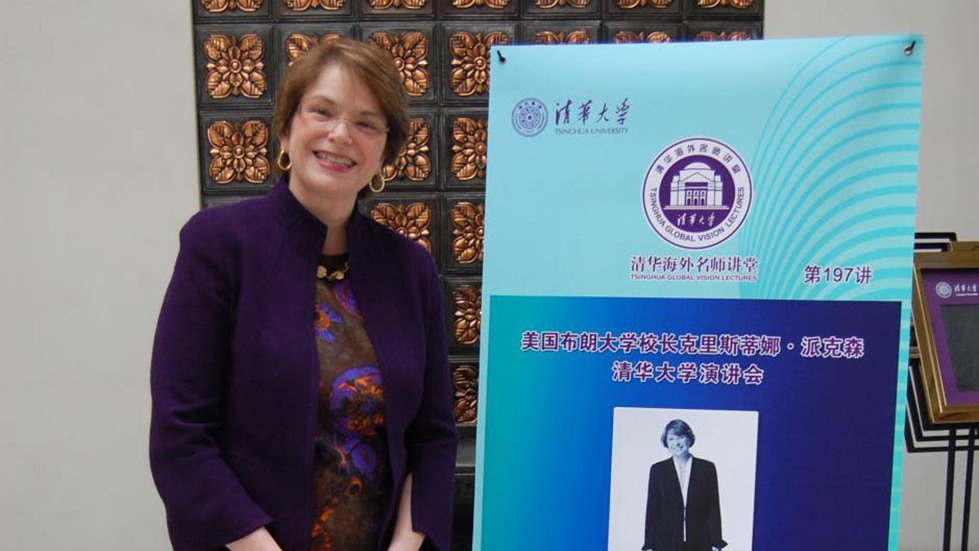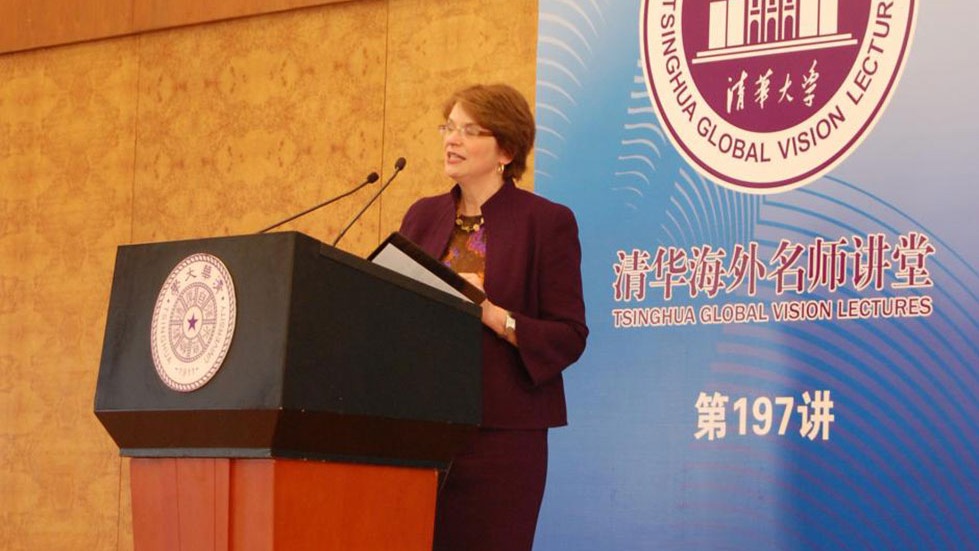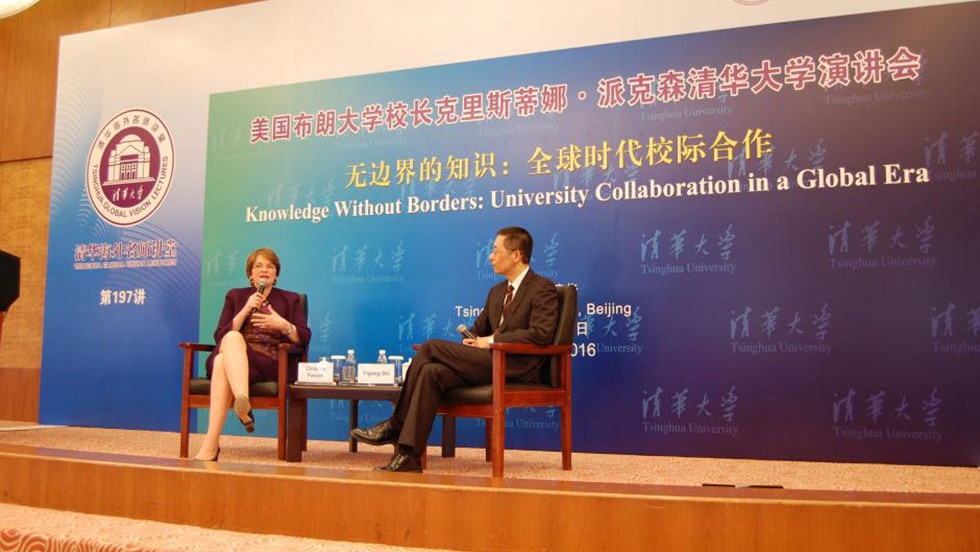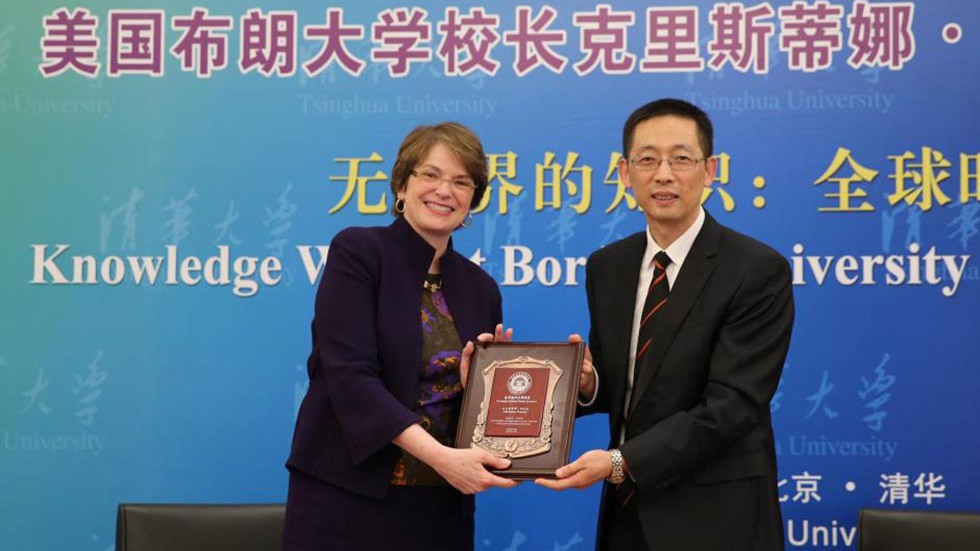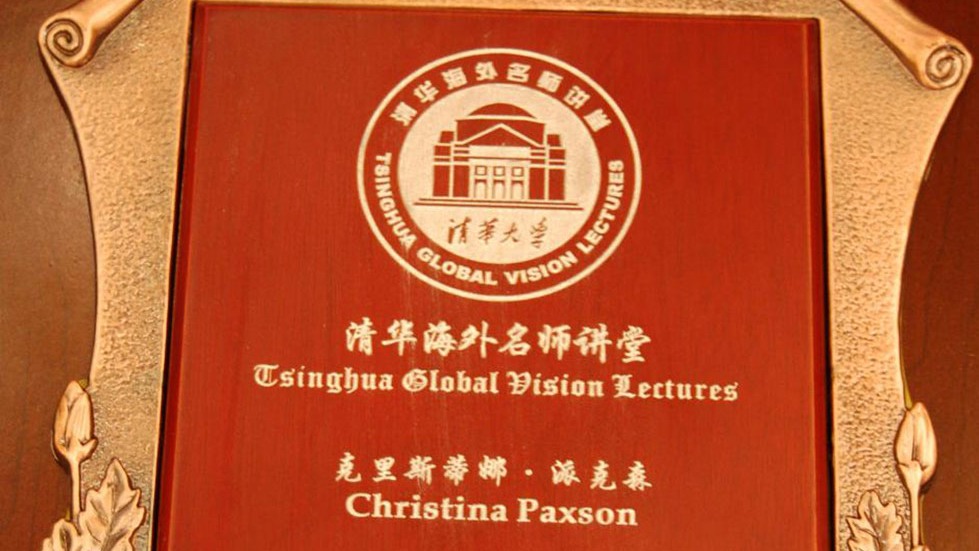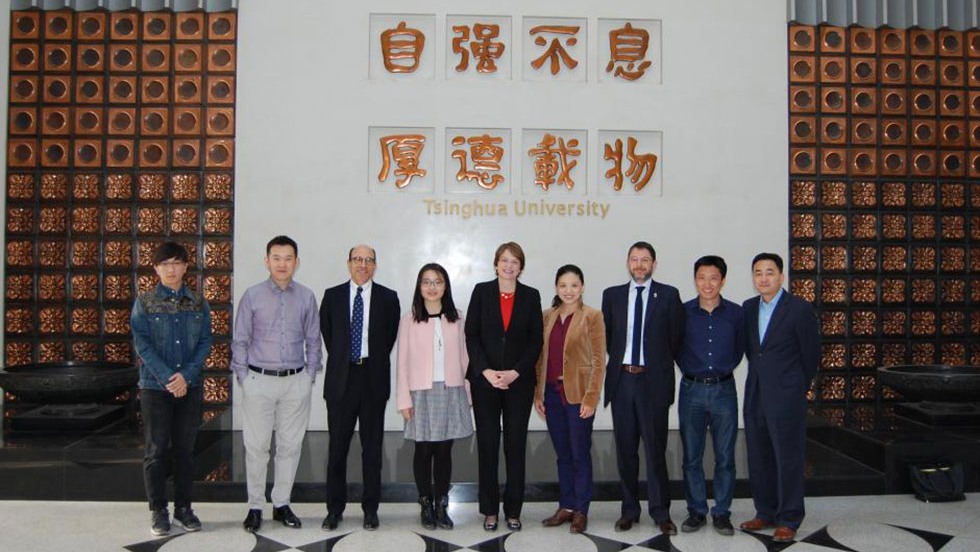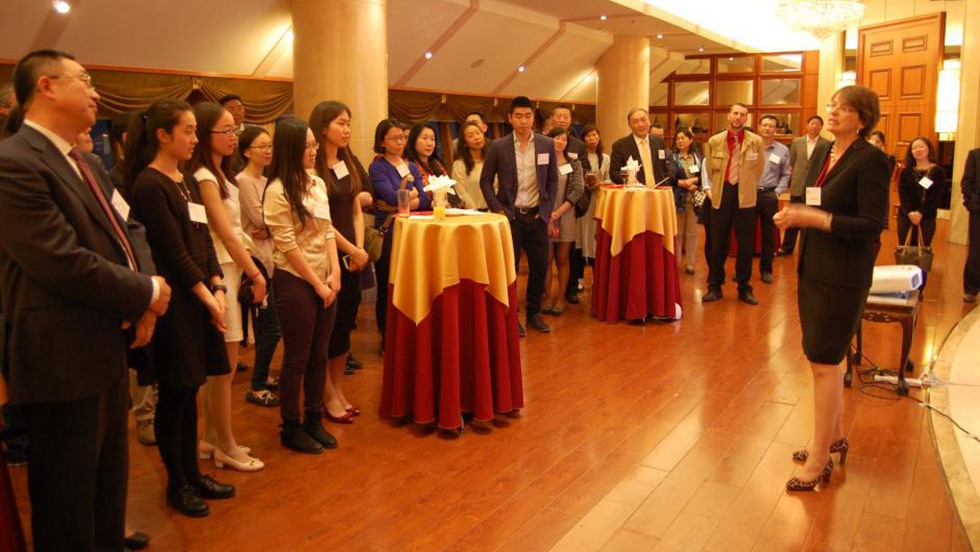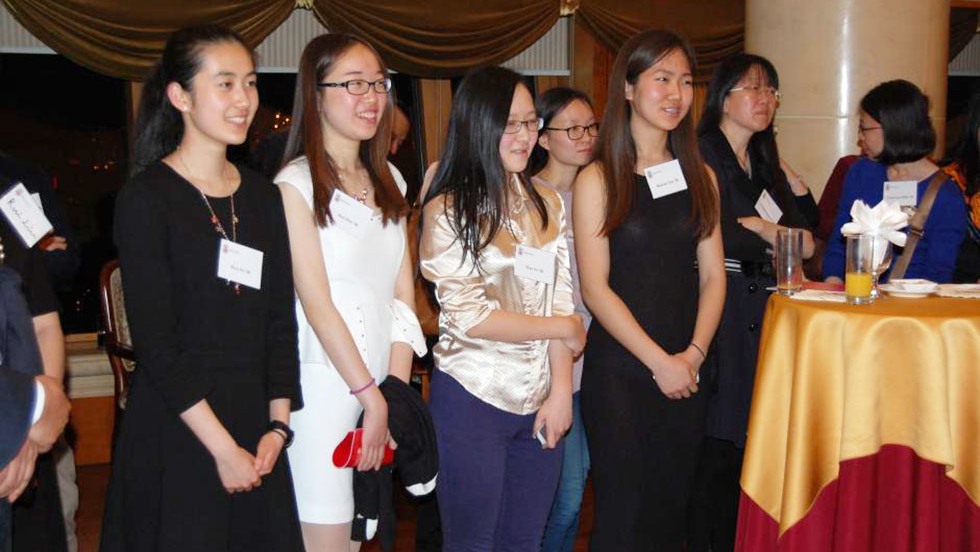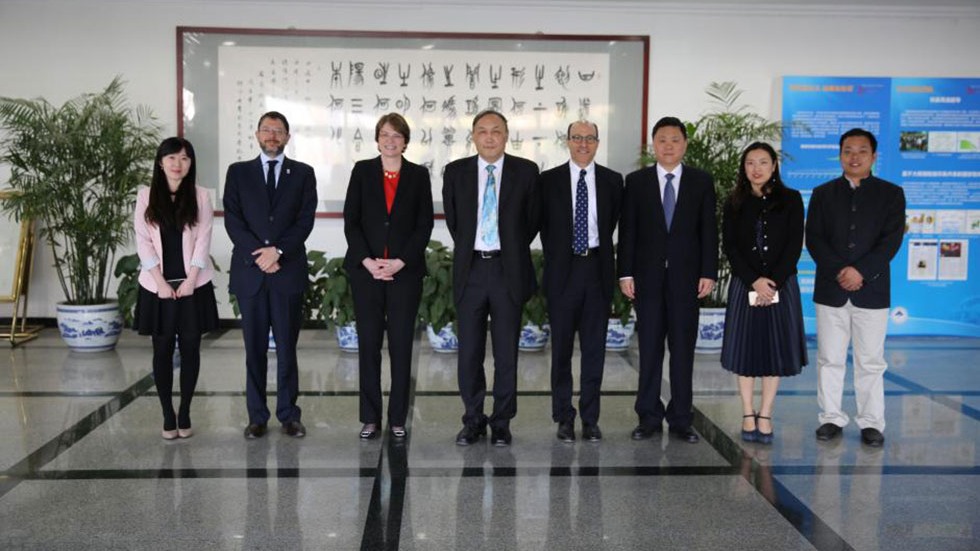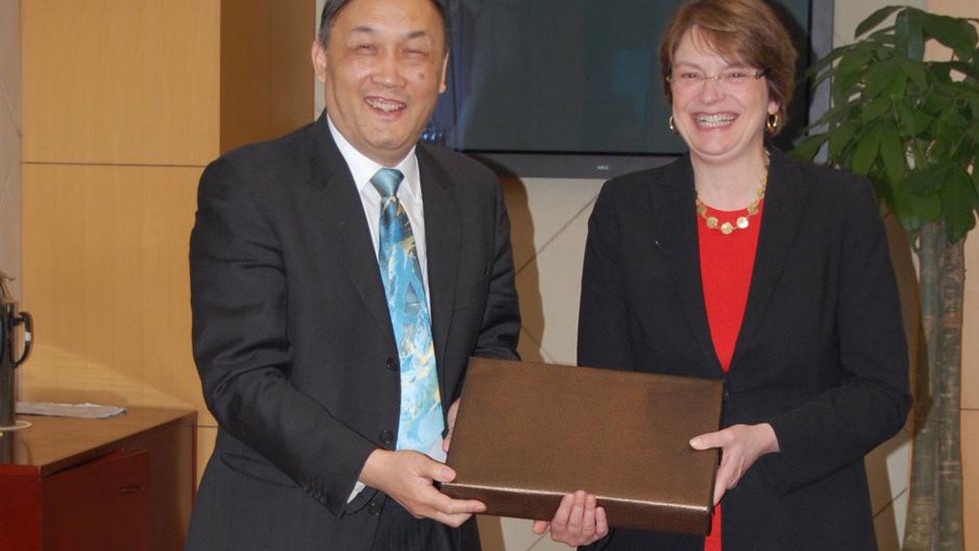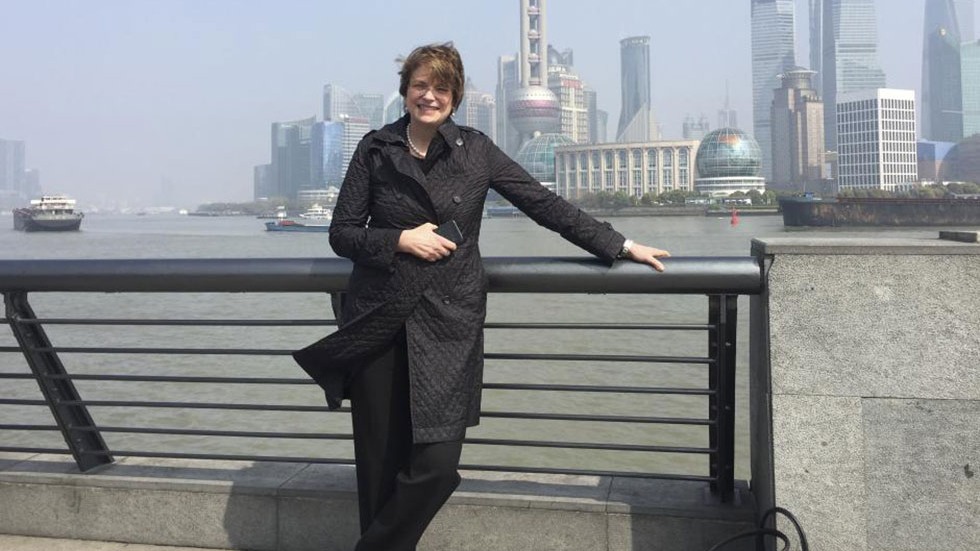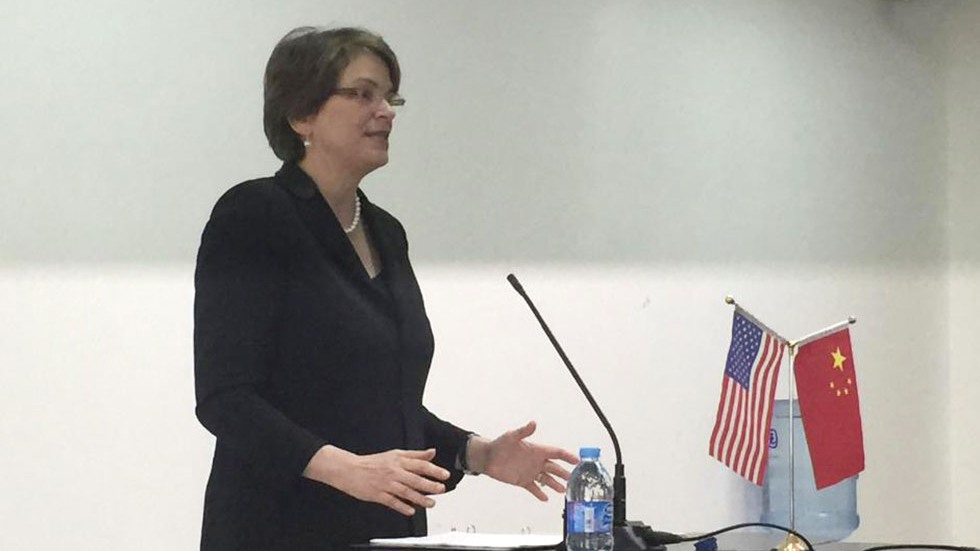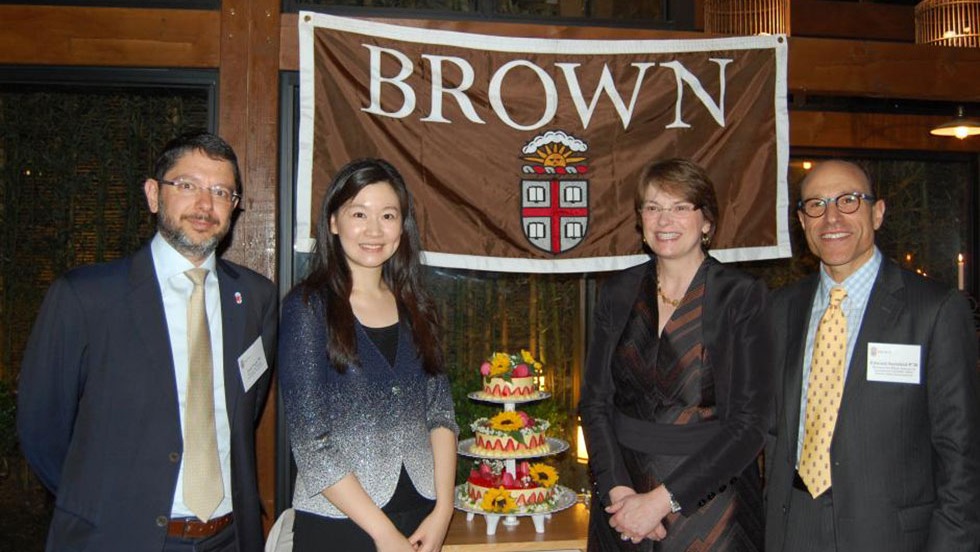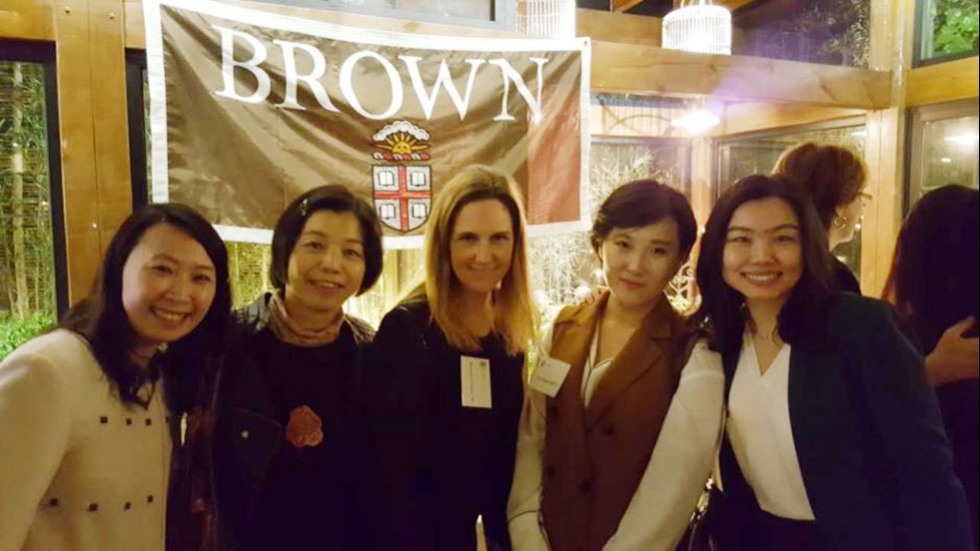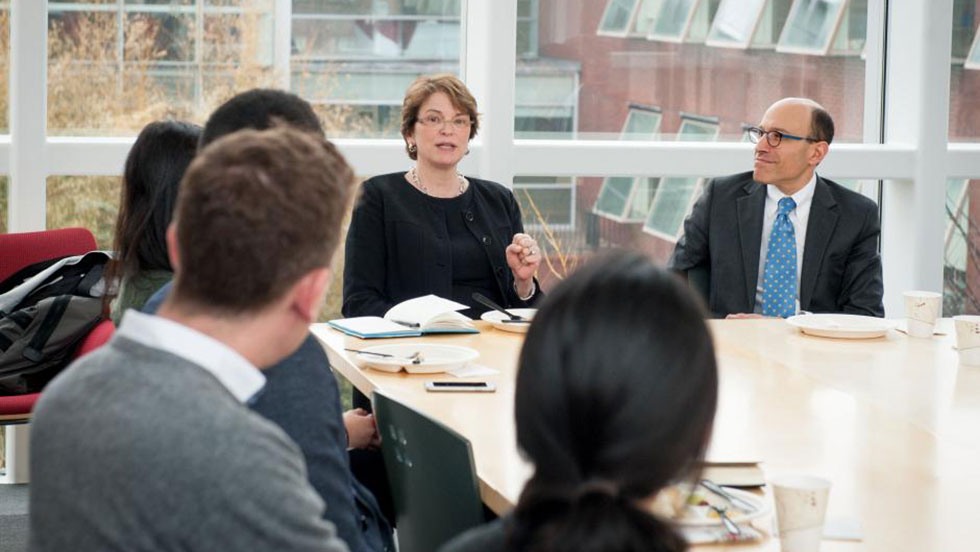PROVIDENCE, R.I. [Brown University] — Brown University President Christina H. Paxson — a higher education leader, economist and public health expert — arrived in Beijing yesterday, launching a weeklong visit to China to explore opportunities for collaboration and knowledge exchange, and to create awareness of Brown’s role as an institution committed to addressing the world’s most pressing challenges through integrative scholarship.
During the trip, Paxson will meet with education leaders and government officials to gain perspective from colleagues and experts in China and to explore ways to collectively share knowledge across borders.
Today, she delivered a presentation titled “Knowledge Without Borders: University Collaboration in a Global Era” as part of Tsinghua University’s Global Vision Lecture Series. Paxson noted that to make progress toward solving complex global challenges — climate change and public health issues, for example — international partnerships are vital.
“Today, we find ourselves at a pivotal moment in time, in the sense that the welfare of all nations and peoples truly hangs in the balance,” Paxson said. “It is a moment that calls for collaboration around knowledge keyed to the global good and directed at solutions to climate change, population health, alternative energy, and so many other complex challenges. It is my hope that such collaboration is part of the ‘Chinese Dream.’ I can promise you that it is part of Brown’s dream. And without question, it is part of a global dream.”
On Friday, April 1, Paxson will visit Fudan University in Shanghai to speak about the importance of global university engagement in opening new avenues for world-changing scholarship. Her presentation at Fudan is titled “Universities: Pathways to Knowledge and Our Global Future.”
Paxson will also meet with Brown University alumni/ae and parents in both Beijing and Shanghai. Among others, she will visit Dr. Yang Wei, a 1985 graduate of Brown’s Ph.D. program in engineering, who currently leads the National Natural Science Foundation of China.
The trip marks Paxson’s fourth visit to China during her Brown presidency. In December 2013, she visited Hong Kong to share details on Building on Distinction, the University’s strategic plan unveiled earlier that fall, and to outline plans for the China Initiative, an interdisciplinary hub for the study of modern China housed at Brown’s Watson Institute for International and Public Affairs. She was joined in that announcement by Edward Steinfeld, who directs the China Initiative, serves as the Howard R. Swearer Director of the Watson Institute and is accompanying Paxson on this week’s trip to Beijing and Shanghai as well.
Building on Distinction articulates Brown’s commitment to research and education that integrate knowledge from diverse disciplines to address issues of critical importance globally — sustaining life on Earth, for example, and using science and technology to improve lives. This week’s trip offers the opportunity to learn from academic leaders in China who are working to solve these same issues.
Paxson also visited Hong Kong in 2014, as part of the University’s 250th anniversary celebration, and in 2012.
A higher education leader, economist and public health expert
Paxson became Brown’s 19th president in July 2012 and also serves as a professor of economics and public policy. Her research focuses on economic development and health, with specific attention to the relationship between economic status and health over the life course, and on the health and wellbeing of children. She has authored research articles on topics ranging from educational attainment among African orphans, to the health and development of children in Ecuador, to the influence of Hurricane Katrina on low-income families.
Prior to her appointment at Brown, Paxson was dean of the Woodrow Wilson School of International and Public Affairs and the Hughes-Rogers Professor of Economics and Public Affairs at Princeton University. While at Princeton, she was the founding director of the Center for the Economics and Demography of Aging; in 2000, she founded the Center for Health and Wellbeing at the Woodrow Wilson School, serving as director until 2009.
As Brown’s president, Paxson worked with students, faculty and staff to develop and launch Building on Distinction, a strategic plan for Brown that informs the University’s growth and progress. The plan builds on the progress of the last decade and provides a vision and a set of broad goals for Brown to reach a new level of excellence as a university that unites innovative education and outstanding research to benefit the community, the nation and the world.
She was elected vice president of the American Economic Association in 2012 and is a member of the Council on Foreign Relations. In January 2016, the Federal Reserve Bank of Boston named Paxson to its board of directors.
A cutting-edge university, steeped in history and tradition
Located in historic Providence, Rhode Island, Brown University was founded in 1764 and is the seventh-oldest college in the United States. A member of the prestigious Ivy League, Brown was the first university among its peers to accept students from all religious affiliations, a testament to the spirit of openness that still typifies Brown today.
The University offers bachelor’s degrees in more than 70 areas of study spanning the sciences, social sciences, arts, humanities and more. Brown is home to 51 doctoral programs and 28 master’s programs, plus the Warren Alpert Medical School, School of Public Health, School of Engineering, and School of Professional Studies.
Brown is frequently recognized for its global reach. The University’s students, faculty and staff interact and engage with individuals from across the world through collaborative research, global partnerships, international travel and more.
The University is a preeminent research institution that regards the creation of knowledge as one of the fundamental elements of its mission. Faculty and students work at the leading edge of research in their fields and collaborate across disciplines and around the world to address society’s biggest challenges. The University is home to more than 40 academic centers and institutes advancing cross-disciplinary, cutting-edge research on topics ranging from the brain sciences and biomedical engineering to slavery, school reform and more.
Brown is also among the most selective institutions in the United States. For the most recent entering class, nearly 31,000 prospective students applied for admission; the University admitted 2,580 students, and 1,615 first-year students enrolled for the 2015-16 academic year.
Connections to China
Brown has strong academic ties to China, many of which are now coordinated through the Watson Institute for International and Public Affairs — a center that brings together teams of researchers from a wide variety of disciplines spanning the sciences, social sciences and humanities — and specifically its China Initiative, launched in the 2014-15 academic year.
With existing talent on the Brown campus and established partnerships with academic leaders across China, a number of scholarly efforts are bringing together researchers across the globe through the China Initiative. For example:
- Faculty member Gregory Wellenius of Brown’s School of Public Health is working with Steinfeld and the Chinese government on a research program studying the complex health consequences of airborne environmental pollutants.
- Brown sociology professor John Logan co-directs the Urban China Research Network — a collaboration of academic institutions across mainland China, Hong Kong, the United States and the United Kingdom that studies China’s contemporary experience of urbanization.
- Faculty members in political science are researching the rapid industrialization and urbanization in contemporary China and India in comparison to the Gilded Age in the late 19th century United States.
- Steinfeld and postdoctoral fellow Jonas Nahm are collaborating with colleagues to study the role Chinese companies play in creating global innovation in renewable energy systems.
The China Initiative also awards Brown faculty and researchers grants for collaborative scholarship or events focused on issues related to China. Recent grants have been awarded to faculty from disciplines ranging from comparative literature to American studies to anthropology.
Paxson’s visit also offers the opportunity to raise Brown’s profile in a country that already comprises the greatest share of the University’s international students.
Among Brown’s student body of more than 9,000 undergraduate, graduate and medical school students, a total of 1,587 international students represent more than 100 countries across the globe — 447 of those students are from China, which equates to 28.2 percent of the University’s international student population. Not only do those students emerge with an Ivy League education, but they also add to an environment at the University in which inspiring a global perspective among all members of the campus community is highly valued.
Brown’s Department of East Asian Studies offers undergraduate students the opportunity to study East Asian languages, including Mandarin, as well as the cultures of the region through courses on literature, film and translation, among others.
Each year at Brown, students from across campus organize an annual Brown-China Summit on the University’s campus. The series explores China’s contemporary transformation through the participation of thought leaders from across Chinese society. Speakers in recent years have included social entrepreneurs, arts, business people, filmmakers, public officials, educators and more. This year’s Brown-China Summit will take place on April 23.
